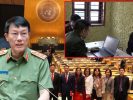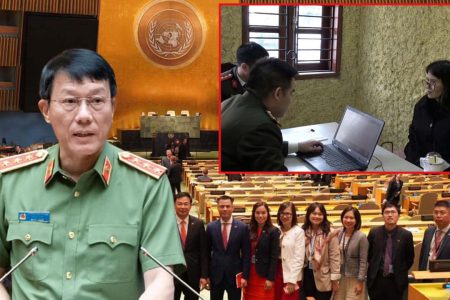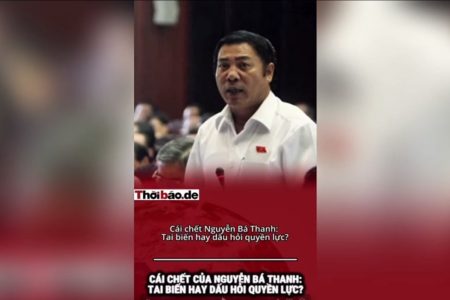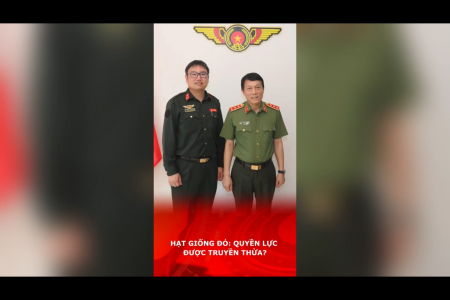
Australian Foreign Minister to visit Southeast Asia
Australian Foreign Minister Marise Payne is on a four-day tour of four Southeast Asian countries. This tour starts from November 5 with stops in Malaysia, then Cambodia – which will take the role of rotating chair of the Association of Southeast Asian Nations (ASEAN) next year, followed by Vietnam and finally Indonesia.
The visit of the Foreign Minister comes after ASEAN agreed to upgrade bilateral relations with Australia to a comprehensive strategic partnership on October 27, and the same with China a day later, on October 28.
Some observers see the deal as a symbolic victory for Canberra in being „one step ahead of Beijing“ to secure the first such agreement with Southeast Asia – a region that is growing dynamically and becoming a strategic arena between Beijing and Washington.
ASEAN is trying to balance relations with all major powers, even though the US-China confrontation is getting more and more intense. This rivalry has spilled over into the Australia-China relationship, as the two countries accuse each other of fueling their trade war. In the face of the multifaceted threat from China, Australia has sided with its traditional ally, the United States. Recently, the UK, US, and Australia formed the AUKUS alliance, which further angered China.
On her official website, the foreign minister said the trip was intended to „strengthen our relationship with key partners, including strengthening our joint work to revive the economy and health issues of the region before the COVID-19 Pandemic.” However, this trip of Ms. Marise Payne will certainly show Australia’s will to develop the market in this region, to replace the lost Chinese market. At the same time, Australia wants to appease and reassure Southeast Asian countries before the AUKUS agreement. On the other hand, Australia also wants to find support from these countries for Australia’s security strategy. In it, it will certainly mention the South China Sea (Vietnam calls it the East Sea) issue. In a recent statement as ASEAN Chair, Brunei addressed the South China Sea issues after the summit with China. The statement read: “A number of ASEAN leaders have raised issues regarding serious incidents and activities in the region, including damage to the marine environment, and the erosion of trust and confidence which increases tensions and risks undermining peace, security, and stability in the region.” The statement did not specify which country or ethnic group was responsible for the activities, but satellite images and regional observers were all aimed at China.
Opportunities to improve Vietnam – Australia relations
Australia is still subject to trade sanctions from China, which is why it is looking to diversify its economic and strategic relationships with its neighbors in Southeast Asia. Vietnam is becoming an attractive option for Australia’s trade diversification efforts and as a strategic partner.
Vietnam officially established diplomatic relations with Australia on February 26, 1973. Relations between the two countries have been continuously consolidated and developed in many fields. On September 7, 2009, the two countries agreed to elevate the Vietnam-Australia relationship to a „Comprehensive Partnership.“ In 2017, Australia and Vietnam announced that their bilateral relationship would be upgraded to a Strategic Partnership, and on March 15, 2018, in Canberra, the then Vietnamese and Australian Prime Ministers signed a Declaration Joint Statement on Establishing a Strategic Partnership between Australia and Vietnam. The two countries also intend to upgrade their relationship to a Comprehensive Strategic Partnership by 2023.
In 2020, Vietnam – Australia trade turnover hit $8.3 billion, of which Vietnam’s exports to Australia reached nearly$3.6 billion; imports from Australia reached $4.7 billion. In the first six months of 2021, Vietnam’s total import and export turnover with Australia reached $5.6 billion, up 41.9% over the same period in 2020. In which, Vietnam’s export turnover to Australia was estimated at $2.1 billion, up 29.7% on year; Vietnam’s import turnover from Australia is estimated at $3.5 billion, up 50.7%.
In the current context, both Vietnam and Australia need to boost their economies, especially when both need economic recovery after the COVID-19 Pandemic. In particular, Vietnam and Australia are both members of the Comprehensive and Progressive Agreement for Trans-Pacific Partnership (CPTPP), and the Regional Comprehensive Economic Partnership (RCEP) – a trade agreement that includes China.
In the face of security threats from China, both Vietnam and Australia find similarities to this threat. However, there are differences in the perception of China between Vietnam and Australia. Vietnam believes that China’s growth brings both opportunities and challenges. Therefore, Vietnam chooses to adopt a hedging strategy to maximize the benefits of closer participation and offset risks by expanding cooperation with other powers. On the other hand, Australia has found that China has moved from being seen as a beneficial economic partner to a different status, in which China is an increasing danger to Australia’s security.
As for the AUKUS initiative, although in the statement of the Spokesperson of the Ministry of Foreign Affairs of Vietnam, it did not show support or opposition to AUKUS as well as Australia’s purchase of nuclear-powered submarines. But according to one expert: “Hanoi’s neutrality towards AUKUS and the Australian submarine trade issue should probably be understood as tacit support, not opposition. Vietnam, which is seen as a „coercive“ target by China, strongly supports an international rules-based order in the Indo-Pacific in line with AUKUS‘ commitments.“
Despite differences in political systems as well as in the assessment of some security issues, Vietnam and Australia are increasingly aligned on strategic priorities and like-minded in many ways. Both share the same view on the strategic challenges posed by China. Both countries recognize that the South China Sea and Mekong River issues are important strategic issues vital to regional security.
Therefore, there are many potential areas for cooperation between Australia and Vietnam. Especially the capacity-building programs in the maritime domain, that is, the enhancement of maritime protection capabilities for Vietnam’s coast guard in countering China’s „gray zone tactics“ in the South China Sea. Australia could cooperate with Japan and the US, which have already joined Vietnam in this type of cooperation. In addition, Australia could also seek to support the development of the Mekong Delta, which is heavily impacted by Chinese-built hydroelectric dams as well as threats from climate change and environmental degradation there.
Thoibao.de (Translated)


























